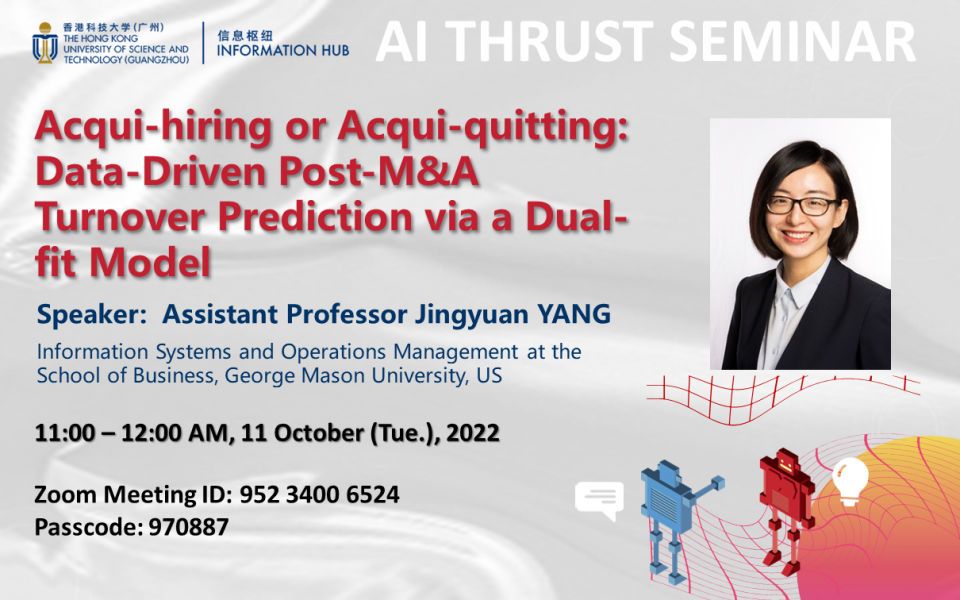AI Thrust Seminar | Acqui-hiring or Acqui-quitting: Data-Driven Post-M&A Turnover Prediction via a Dual-fit Model
Gaining highly skilled human capital is one of the primary reasons for corporate mergers and acquisitions (M&A), especially for knowledge-intensive industries. However, the inevitable tensions brought by the divergent cultures and organizational misalignment during the M&A process result in a high talent turnover rate and ultimately integration failure. Hence, it is imperative to understand and prepare for the potential effects of the M&A process on employee turnover. To this end, we propose a novel dual-fit model induced heterogeneous Graph Neural Network (GNN) model to predict the talent turnover trend in the post-M&A process, by taking into account the complex relationship among the acquirer firm, the acquiree firm, and the acquired employees. Specifically, we creatively design a dual-fit model comprised of both firm-level compatibility and employee-firm fit. This framework can effectively integrate multi-source, heterogeneous data and provide a more nuanced understanding of the compatibility between the firm pairs. Extensive evaluations of large-scale real-world data clearly demonstrate the effectiveness of our approach. We conclude by discussing the theoretical and practical implications of interesting findings.
Jingyuan Yang is an assistant professor of Information Systems and Operations Management at the School of Business, George Mason University. She received her Ph.D. in Information Technology from the Business School at Rutgers, the State University of New Jersey in 2018. Her research in business analytics and data mining has been published in top-tier journals such as INFORMS Journal on Computing (IJOC), IEEE Transactions on Knowledge and Data Engineering (TKDE), Neural Networks, as well as in top conferences of knowledge discovery and data mining, including the IEEE International Conference on Data Mining (ICDM), the SIGKDD Conference on Knowledge Discovery and Data Mining (KDD), and the IEEE International Conference on Big Data (Big Data).
